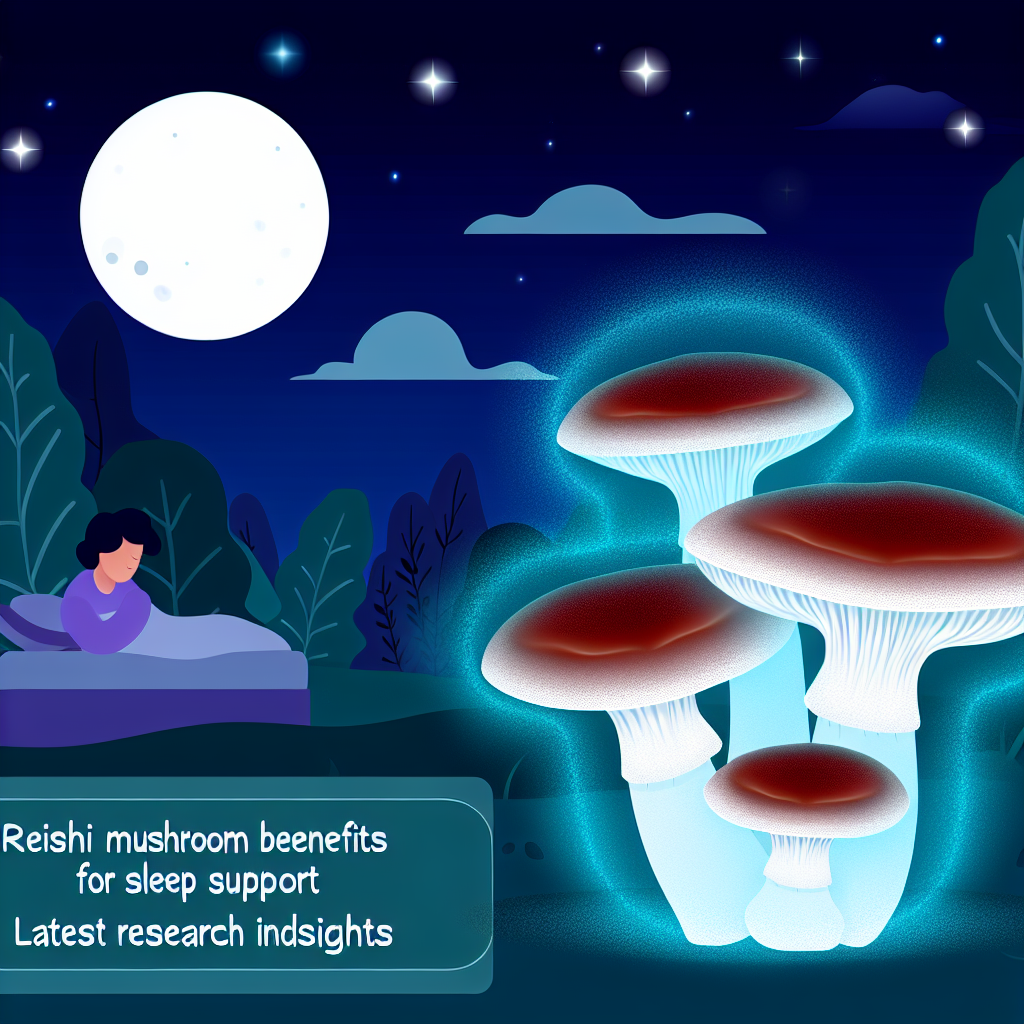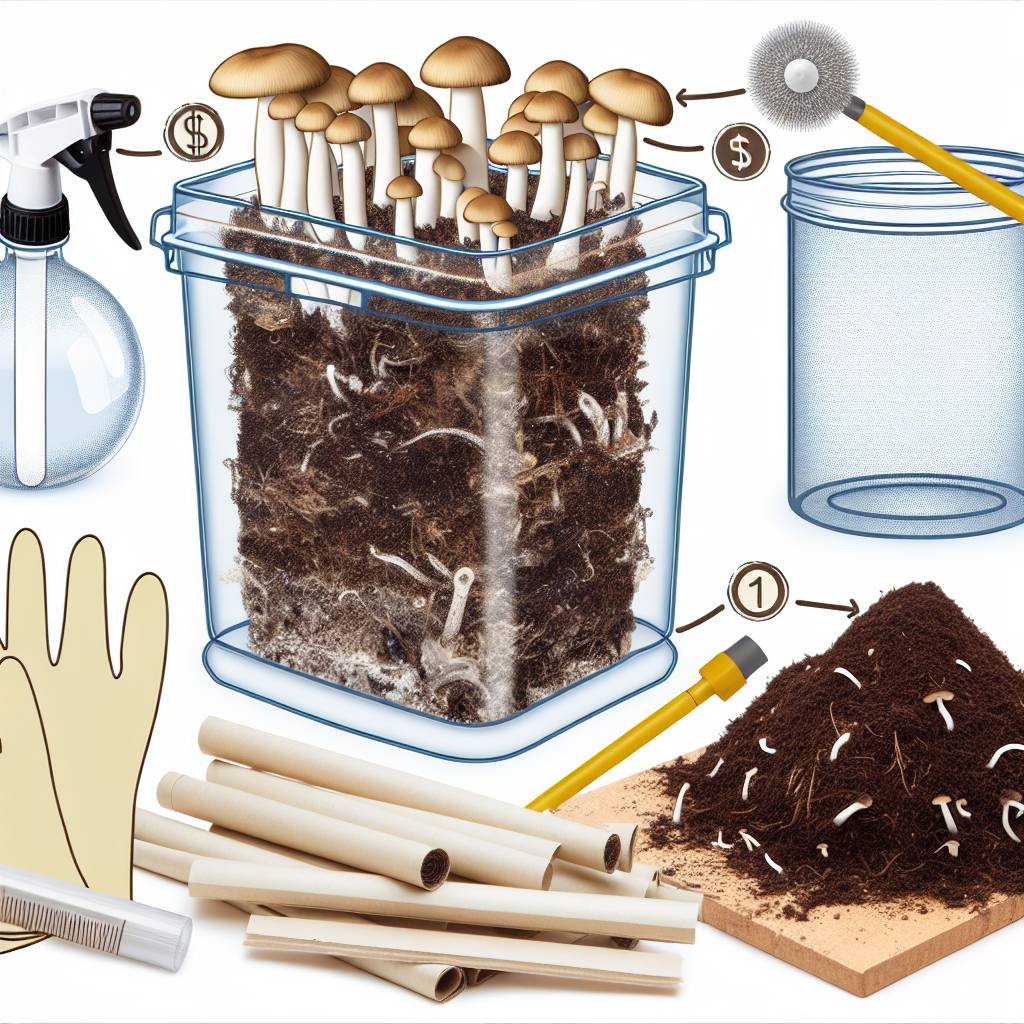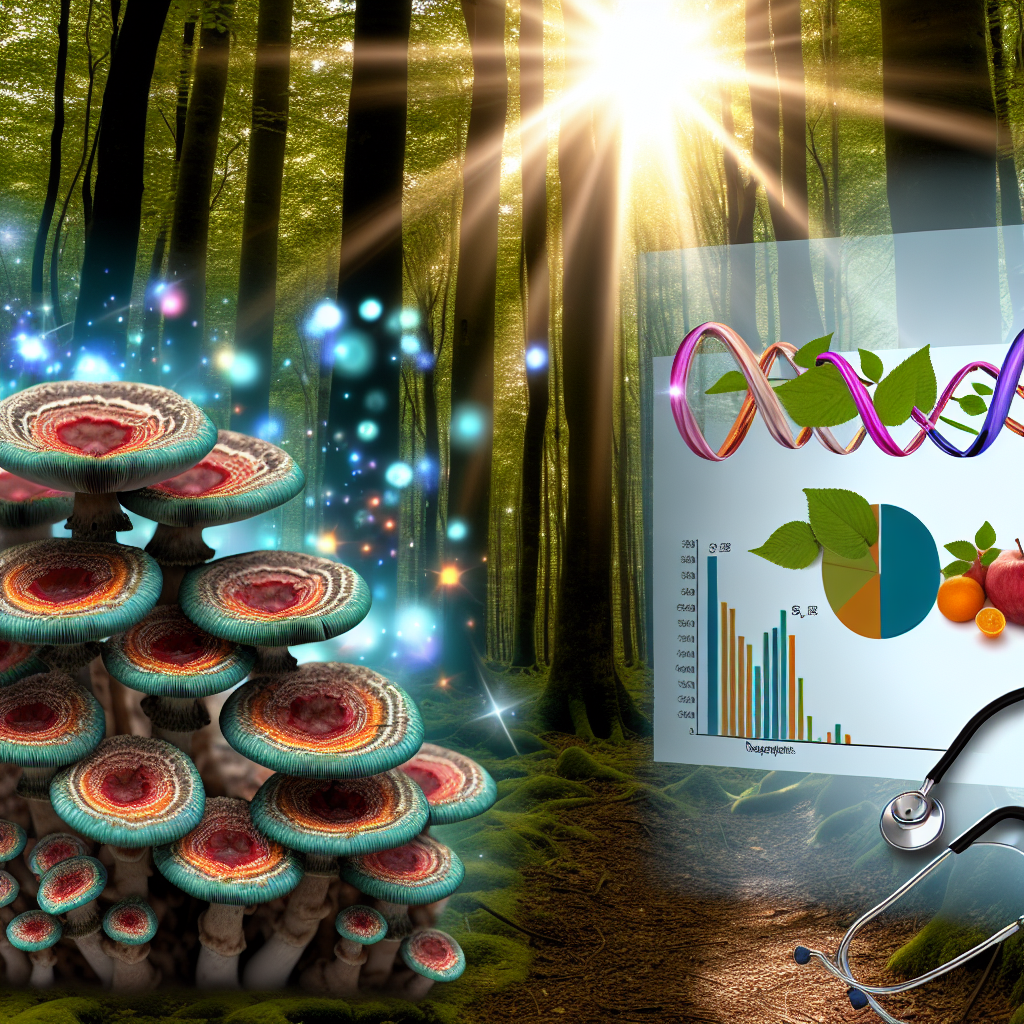Reishi Mushroom Benefits for Sleep Support: Latest Research Insights
In the age of digital overload, relentless schedules, and rising stress levels, sleep quality has steadily declined for millions. According to the CDC, about one-third of U.S. adults report getting less than the recommended seven hours of sleep per night. As people seek natural and non-habit-forming alternatives to pharmaceutical sleep aids, medicinal mushrooms like Reishi (Ganoderma lucidum) are gaining attention for their potential to support restful, restorative sleep.
Known as the “mushroom of immortality” in traditional Chinese medicine, Reishi has been used for over 2,000 years for its adaptogenic properties—helping the body resist various stressors. In modern wellness circles, it’s often touted as a valuable ally in promoting deep, restful sleep without the dependence and side effects associated with sedatives or sleep medications. This ancient functional mushroom is now being explored through the lens of modern science to validate its efficacy and unlock its full therapeutic potential.
Reishi’s ability to support sleep arises from its multifaceted actions on the body and mind. It contains over 400 bioactive compounds, including polysaccharides, triterpenes, and peptidoglycans. These molecules work synergistically to regulate the immune system, reduce inflammatory responses, and modulate the body’s stress axis—factors that are closely linked to sleep health.
Beyond its adaptogenic and immune-supporting effects, Reishi appears to interact directly with the central nervous system. Research suggests it may influence neurotransmitters like serotonin and GABA (gamma-aminobutyric acid), both of which play major roles in the sleep-wake cycle. By promoting relaxation and reducing physiological anxiety, Reishi can potentially contribute to a more natural and uninterrupted sleep experience.
As interest grows in plant-based and fungal remedies that heal holistically, Reishi stands out as a potent natural tool to address one of the most common modern health challenges: poor sleep. In this article, we explore the latest scientific developments concerning Reishi and its role in sleep support—presenting comprehensive insights for individuals seeking safe, sustainable, and evidence-based solutions.
Science-Backed Sleep Support: Reishi Mushroom in Focus
Recent scientific research has begun to validate the longstanding traditional use of Reishi mushroom for supporting sleep. While more clinical trials on humans are still needed to solidify its effects, preliminary findings are remarkably promising.
A groundbreaking study published in the journal Phytotherapy Research explored the sleep-enhancing effects of Reishi extract on rodents. Subjects treated with Ganoderma lucidum extract for seven days exhibited significant increases in non-rapid eye movement (NREM) sleep duration along with a reduction in wakefulness. The study concluded that the bioactive compounds in Reishi, particularly ganoderic acids and triterpenoids, may modulate behavior by influencing the GABAergic system, a key regulator of sleep and anxiety. (source)
Natural Anxiety Relief: A Key to Better Sleep
Another study conducted in 2021 investigated the potential anti-anxiety and antidepressant-like effects of Reishi polysaccharides. Since anxiety and mood disorders are common contributors to insomnia and restlessness, these findings are highly relevant to sleep health. The study found that Reishi polysaccharides led to a significant reduction in behavioral markers of anxiety in animal models, suggesting a central nervous system calming effect. (source)
GABAergic Activity: Reishi as a Natural Sedative
Further support comes from a 2012 study in Evidence-Based Complementary and Alternative Medicine, which examined the sedative-hypnotic activity of ethanol extract from Ganoderma lucidum. Using a series of behavioral tests on mice, the research confirmed that the extract significantly prolonged sleep duration induced by pentobarbital, a barbiturate drug. The findings pointed to an interaction between the mushroom’s constituents and GABA receptors—a mechanism also utilized by common sleep medications such as benzodiazepines. (source)
What Real Users Are Saying: Human Anecdotal Evidence
Beyond animal studies, anecdotal and observational human data are emerging. A 2020 survey of Reishi users published in the Journal of Functional Foods revealed that participants reported improved sleep quality, increased energy upon waking, and reduced nighttime awakening episodes after using Reishi consistently for several weeks. Though self-reported and inherently subjective, these responses align with Reishi’s known pharmacological activity. (source)
Anti-Inflammatory Support: Calming the Body for Deeper Sleep
Reishi’s anti-inflammatory and immune-regulatory properties also play a role in improving sleep. Chronic inflammation is a known disruptor of sleep architecture. Reishi’s beta-glucans and triterpenoids have been shown to suppress inflammatory cytokines and promote a balanced immune response, indirectly supporting more restful sleep. (source)
The convergence of ancient herbal wisdom and 21st-century biomedicine paints a compelling picture of Reishi as a potential sleep-supportive nutraceutical. While standardization of dosages and long-term studies in humans are necessary to form clinical guidelines, the available evidence affirms that Reishi holds promise as a natural, side-effect-free intervention in the pursuit of better sleep.
Conclusion: Embracing Reishi for Restful Nights
Sleep is the cornerstone of good health, and chronic sleep deprivation carries significant long-term consequences. Reishi mushroom, backed by both traditional use and emerging scientific research, offers a promising natural alternative for those seeking to improve their sleep without reliance on pharmaceuticals. As part of a balanced nighttime routine, Reishi may reduce anxiety, promote relaxation, and help restore the body’s natural circadian rhythm. As always, consult a healthcare provider before beginning any new supplement regimen, but Reishi’s potential to support serene slumber is well worth considering.
References
Concise Summary:
Reishi mushroom, an ancient medicinal fungus, has gained attention for its potential to support restful, restorative sleep. Recent scientific research has validated Reishi’s ability to modulate the GABAergic system, reduce anxiety, and promote a balanced immune response – all of which are closely linked to sleep health. Preliminary findings suggest Reishi may be a safe, natural alternative for individuals seeking to improve their sleep without reliance on pharmaceuticals.

Dominic E. is a passionate filmmaker navigating the exciting intersection of art and science. By day, he delves into the complexities of the human body as a full-time medical writer, meticulously translating intricate medical concepts into accessible and engaging narratives. By night, he explores the boundless realm of cinematic storytelling, crafting narratives that evoke emotion and challenge perspectives. Film Student and Full-time Medical Writer for ContentVendor.com




